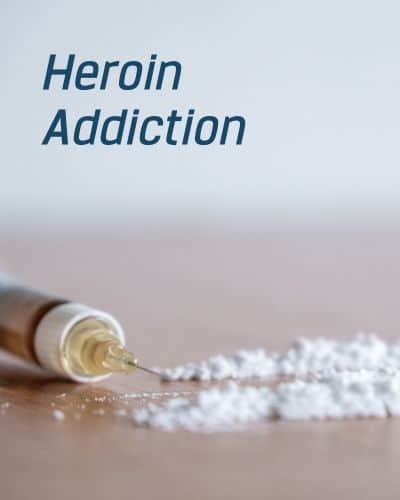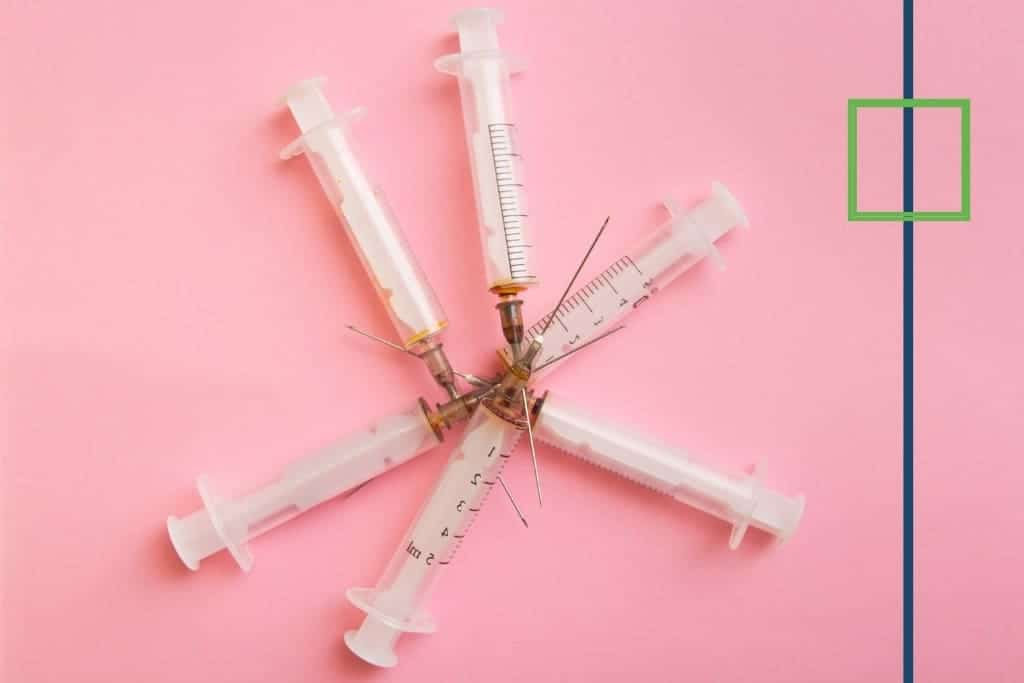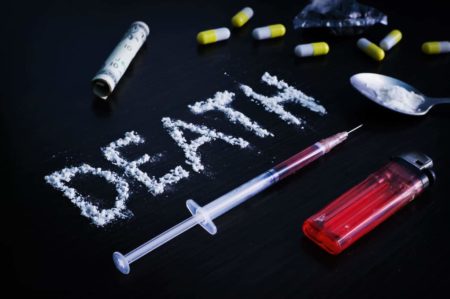Signs and Symptoms of Heroin Use – Heroin Addiction
Heroin is a drug that reaches the brain very fast once it’s consumed, for this reason, it is very easy for a person to develop heroin addiction even from one or a few uses. Before we get to the main topic, let’s learn about what heroin is. According to the scientific piece ‘Heroin’, published by The National Library of Medicine, Heroin is a white or brown powder or a black, sticky goo. It’s an opioid drug made from morphine, a natural substance in the seedpod of the Asian poppy plant.
It can be mixed with water and injected with a needle. Heroin can also be smoked or snorted up the nose. All of these ways of taking heroin send it to the brain very quickly. This makes it very addictive.
Regular use of heroin can lead to tolerance. This means users need more and more drugs to have the same effect. At higher doses over time, the body becomes dependent on heroin. If dependent users stop heroin, they have withdrawal symptoms. These symptoms include restlessness, muscle and bone pain, diarrhea and vomiting, and cold flashes with goosebumps”.
Heroin is a highly addictive drug. One of the signs and symptoms of heroin use is developing a tolerance, which means that they need higher and/or more frequent doses of the drug to get the desired effects. A substance use disorder (SUD) is when continued use of the drug causes issues, such as health problems and failure to meet responsibilities at work, school, or home. A SUD can range from mild to severe, the most severe form being addiction.

Get Your Life Back
Find Hope & Recovery. Get Safe Comfortable Detox, Addiction Rehab & Dual Diagnosis High-Quality Care.
Hotline(844) 597-1011As stated by The National Institute on Drug Abuse, in the piece ‘Heroin DrugFacts’, Those who suffer from Heroin Addiction and stop using the drug abruptly may have severe withdrawal. Withdrawal symptoms, which can begin as early as a few hours after the drug was last taken, include:
- Restlessness
- Severe muscle and bone pain
- Sleep problems
- Diarrhea and vomiting
- Cold flashes with goosebumps (‘Cold turkey’)
- Uncontrollable leg movements (‘Kicking the habit’)
- Severe heroin cravings

On the authority of the scientific piece ‘Heroin Addiction’, Sándor Hosztafi, published by The National Library of Medicine, recent research has shown that major withdrawal symptoms peak between 48 and 72 hours after the last dose of heroin and subside after about a week. At this time, weakness and depression are pronounced and nausea and vomiting are common. Nevertheless, some chronic addicts have shown persistent withdrawal signs for many months or even years. Heroin Addiction is considered a behavioral state of compulsive drug use and a high tendency to relapse after periods of abstinence.
Researchers are studying the long-term effects of opioid addiction on the brain. Studies have shown some loss of the brain’s white matter associated with heroin use, which may affect decision-making, behavior control, and responses to stressful situations.
Heroin Addiction Statistics
According to the Centers for Disease Control (CDC), since 2000, the number of drug overdose deaths has increased by 137 percent, with opioid drugs leading to a dramatic rise. There has been a 200 percent increase in opioid overdose deaths due to the increase in both opioid medication and heroin addiction and abuse.
Over 10,500 people died from a heroin overdose in 2014 alone, with non-Hispanic white individuals between the ages of 18 and 44 experiencing the highest rates of heroin overdose death, according to the Centers for Disease Control. Historically, men have been the primary victims of a heroin overdose; however, since 2011, rates of women abusing heroin and overdosing from it have risen substantially.
Nonfatal heroin overdoses are more common than fatal overdoses, according to the World Health Organization. The international medical association noted that some groups of people who struggle with addiction to heroin are at a higher risk of suffering a heroin overdose.
Although many people who struggle with heroin addiction are single, WHO notes that heroin overdoses tend to happen in front of at least one witness, like a family member or friend. It is very important, regardless of the situation, for people who witness a person suffering from a heroin overdose (or prescription opioid painkillers) to call 911 and get emergency medical help immediately. Doing so can save a person’s life.
- Individuals who have reduced their tolerance to heroin, such as those who went through medical detox or rehabilitation, then relapsed
- People who inject opioids like heroin, instead of using other methods of ingestion
- People who take high doses of opioids, especially when transitioning from prescription painkiller addiction to heroin abuse
- Those suffering medical conditions that affect the liver, such as people with hepatitis B or C, or HIV (People who inject heroin are at a higher risk of developing these infections.)
- Individuals who suffer from depression
- Those who use heroin in combination with other drugs, whether prescription or illegal, especially alcohol or other depressants
Get Help. Get Better. Get Your Life Back.
Searching for Accredited Drug and Alcohol Rehab Centers Near You?
Even if you have failed previously and relapsed, or are in the middle of a difficult crisis, we stand ready to support you. Our trusted behavioral health specialists will not give up on you. When you feel ready or just want someone to speak to about therapy alternatives to change your life call us. Even if we cannot assist you, we will lead you to wherever you can get support. There is no obligation. Call our hotline today.
(844) 597-1011What Causes Heroin Addiction?
Heroin is one of the most addictive drugs available. It doesn’t take much for someone to get addicted. It can happen in as little as one dose. Still, certain people may be at greater risk for developing an addiction than others.
Frequent Heroin Consumption
Since heroin can have someone addicted in just one dose, the more doses you take, the higher your chances of addiction. Plus, the body also builds a tolerance to heroin quickly. It gets used to having the drug in its system. As a result, you have to take more and more each time to get the same effects. This makes addiction more likely because withdrawals will be more severe. It will be harder to quit using.

Heroin at an Early Age
There’s an unfortunate link between teens and heroin abuse. Using heroin at an early age makes addiction more likely. For starters, there’s just more time to use the drug and build a tolerance. Also, studies show that teenagers have not finished developing mentally. They are still not fully able to control their impulses and emotions. That’s why they have higher risks of taking drugs. They are unlikely to fully understand the dangers, which can lead to addiction.
Family History of Heroin Addiction
Addiction tends to run in families. With everything from tobacco to heroin, if your relatives suffer from addiction, likely, you will too. Besides the fact that this means you grew up in a household where addiction was common, there is a genetic component. Genes may play a role in mental illnesses, impulsivity, and stress responses that can impact addiction. Plus, they can affect brain chemistry and make it easier to form a dependence on heroin.
Signs of Heroin Use
Several signs may be present in an individual who is abusing heroin. Some symptoms that may be noticeable immediately after heroin use include:
- Sudden changes in behavior
- Loss of concentration or interest
- Small pupils
- Suddenly nodding off
- Periods of hyperalertness
- Shortness of breath
As the disease progresses into heroin addiction and dependence the signs and symptoms of heroin use may become more severe. Some more severe symptoms include:
First-class Facilities & Amenities
World-class High-Quality Addiction & Mental Health Rehabilitation Treatment
Rehab Centers TourRenowned Addiction Centers. Serene Private Facilities. Inpatient rehab programs vary.
Addiction Helpline(844) 597-1011Proven recovery success experience, backed by a Team w/ History of:
15+
Years of Unified Experience
100s
5-Star Reviews Across Our Centers
10K
Recovery Success Stories Across Our Network
- Low Patient to Therapist Ratio
- Onsite Medical Detox Center
- Comprehensive Dual-Diagnosis Treatment
- Complimentary Family & Alumni Programs
- Coaching, Recovery & Personal Development Events
Physical Signs of Heroin Use
- Warm flushing of the skin
- Dry mouth
- Heavy feeling in the extremities
- Nausea and vomiting
Behavioral Signs of Heroin Use
- Pushing loved ones away due to shame or disgust with oneself
- Argumentative with family and friends
- Stealing from loved ones or participation in other illegal activities to pay for drug use
- Wearing long pants and long sleeves even in warm weather (to hide needle marks)
- Lying or other deceptive behavior
- Hostile behavior
- Diminished coordination
- Loss of interest in activities once enjoyed
- Severe itching
Psychological Signs of Heroin Use
- A rapid shift in the way life is prioritized (thoughts entirely focused around drug use)
- Loss of sense of responsibility
- Irritability
- Hostility
- Depression
- Anxiety
- Sleep disturbances such as insomnia
- Restlessness
Signs of a Heroin Addict
Heroin enters the brain rapidly and binds to opioid receptors on cells located in many areas, especially those involved in feelings of pain and pleasure and in controlling heart rate, sleeping, and breathing.
People report feeling a “rush” (a surge of pleasure, or euphoria) when using Heroin. Nevertheless, there are other short-term symptoms of this drug, this can include:
- Dry mouth
- Warm flushing of the skin
- Heavy feeling in the arms and legs
- Nausea and vomiting
- Severe itching
- Clouded mental functioning
- Going “on the nod,” a back-and-forth state of being conscious and semiconscious.
Long-Term Effects of Heroin Use
People who consume heroin may develop the following conditions over time, be careful of these signs:
- Insomnia
- Collapsed veins for people who inject the drug
- Damaged tissue inside the nose for people who sniff or snort it
- Infection of the heart lining and valves
- Abscesses (swollen tissue filled with pus)
- Constipation and stomach cramping
- Liver and kidney disease
- Lung complications, including pneumonia
- Mental disorders such as depression and antisocial personality disorder
- Sexual dysfunction for men
- Irregular menstrual cycles for women
Heroin often contains additives, such as sugar, starch, or powdered milk, that can clog blood vessels leading to the lungs, liver, kidneys, or brain, causing permanent damage. Also, sharing drug injection equipment and having impaired judgment from drug use can increase the risk of contracting infectious diseases such as HIV and hepatitis.
World-class, Accredited, 5-Star Reviewed, Effective Addiction & Mental Health Programs. Complete Behavioral Health Inpatient Rehab, Detox plus Co-occuring Disorders Therapy.
CALL(844) 597-1011End the Addiction Pain. End the Emotional Rollercoaster. Get Your Life Back. Start Drug, Alcohol & Dual Diagnosis Mental Health Treatment Now. Get Free No-obligation Guidance by Substance Abuse Specialists Who Understand Addiction & Mental Health Recovery & Know How to Help.
How Can You Tell if Someone is Using Heroin? Signs and Symptoms of Heroin Use
Heroin Overdose
Additionally to the previous signs and symptoms, heroin addiction can easily lead a person to overdose because of its way of making people want more and more of the substance. A heroin overdose occurs when a person uses enough of the drug to produce a life-threatening reaction or death.
When people overdose on heroin, their breathing often slows or stops. This can decrease the amount of oxygen that reaches the brain, a condition called hypoxia. Hypoxia can have short- and long-term mental effects and effects on the nervous system, including coma and permanent brain damage.
Heroin Addiction and Co-Occurring Disorders
Mental health problems and substance use disorders sometimes occur together, these types of issues are called co-occurring disorders. This is because:

- Certain illegal drugs can cause people with an addiction to experience one or more symptoms of a mental health problem.
- Mental health problems can sometimes lead to drug use or severe alcoholism, as some people with mental health problems may misuse these substances as a form of self-medication.
- Mental and substance use disorders share some underlying causes, including changes in brain composition, genetic vulnerabilities, and early exposure to stress or trauma.
More than one in four adults living with serious mental health problems also has a substance use problem. Substance use problems occur more frequently with certain mental health problems, including:
- Depression
- Anxiety Disorders
- Schizophrenia
- Personality Disorders
Reclaim Your Life From Heroin Addiction
Heroin addiction is a serious condition that should not be taken lightly. We Level Up rehab treatment & detox center can provide you, or someone you love, the tools to recover from heroin addiction with professional and safe treatment. Feel free to call us to speak with one of our counselors. We can inform you about this condition by giving you relevant information. Our specialists know what you are going through. Please know that each call is private and confidential.
Experience Transformative Recovery at We Level Up Treatment Centers.
See our authentic success stories. Get inspired. Get the help you deserve.
Start a New Life
Begin with a free call to an addiction & behavioral health treatment advisor. Learn more about our dual-diagnosis programs. The We Level Up Treatment Center Network delivers recovery programs that vary by each treatment facility. Call to learn more.
- Personalized Care
- Caring Accountable Staff
- World-class Amenities
- Licensed & Accredited
- Renowned w/ 100s 5-Star Reviews
We’ll Call You
Sources
[1] ‘Heroin’ – National Library of Medicine (Medlineplus.gov)
[2] ‘Heroin DrugFacts’ – The National Institute on Drug Abuse (drugabuse.gov)
[3] ‘[Heroin Addiction]’, Sándor Hosztafi, National Library of Medicine (pubmed.ncbi.nlm.nih.gov)


